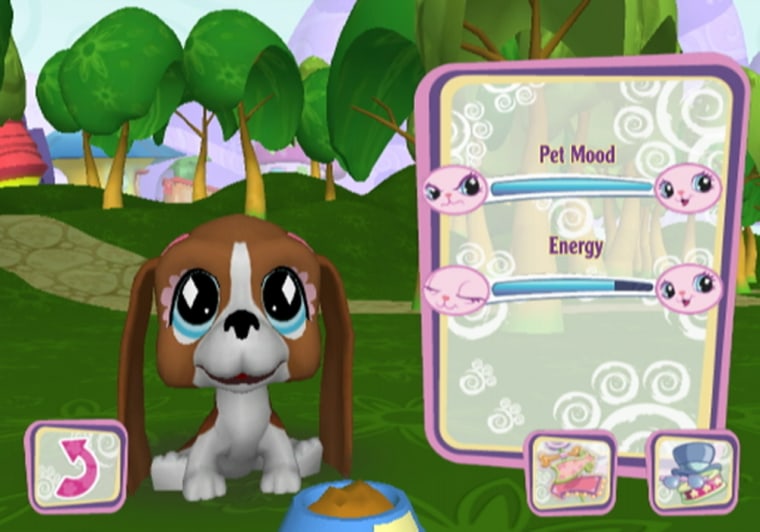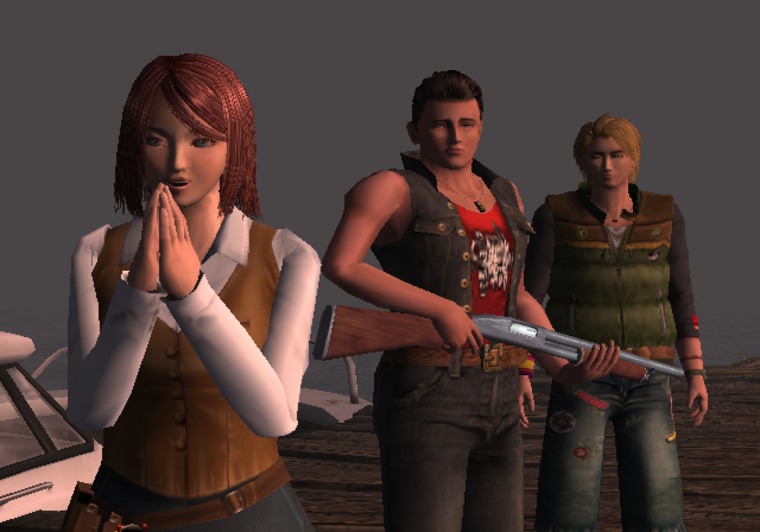John Shuster bought a Wii for the holidays. And so far, the only games he’s liked? “Wii Play” and “Wii Sports.” Everything else, he says, went back to the rental counter a day early.
“I guess now that I have the money for the pinnacle of gaming, I’m just not that interested in it,” he wrote in an e-mail.
And that’s been the rap on the Nintendo Wii since its late-2006 launch: hot console, lukewarm games. Or, at least, the games that weren’t from Nintendo.
To wit: According to the NPD Group, the five top-selling games for the console, since launch, are “Wii Play” (which sells with an extra Wii remote), “Mario Kart,” “Super Mario Galaxy,” “Wii Fit” and “Super Smash Bros. Brawl.” All made by Nintendo.
In video game history, lack of diversity in a console’s game lineup spelled certain doom. Just look at the original Xbox, which was buried by the PlayStation 2 and its monster catalog. Heck, look at Nintendo’s last offering, the loveable GameCube, which died an early death because of lack of third-party titles.
So far, the Wii has been bucking this trend. Rewriting the rules, you might say. Every month, Nintendo games are the top sellers. Third-party developers are just now figuring out how to make games for the Wii crowd — two years into the console’s life. And the Wii’s still selling like hotcakes. So far.
Nintendo cut its forecast for sales of the Wii — from 27.5 million to 26.5 million — based largely on softening sales in Japan. But the message is clear: The recession-proof Wii is not, in fact, recession-proof. And for Nintendo to compete in this packed market, it will need to improve — as the marketing people say — its value proposition. It will need more quality titles. Fast.
The first offerings from developers for the Wii were, to put it mildly, underwhelming. Nobody in the industry thought the Wii was going to amount to much. It didn’t have the graphical horsepower of the PlayStation 3, or the year’s head start of the Xbox 360. All it had was a TV remote lookalike that you could wave around like a light saber.
The industry got it wrong. Chip Lange, general manager of the EA Hasbro division at the company — and a longtime marketer of the company’s powerhouse EA Sports line — admits that the success of the Wii caught everyone flat-footed. Companies — including EA — rushed out Wii titles that felt more like quick-and-dirty ports than games designed to take full advantage of the Wii remote.
“It’s been a learning process,” says Dave McCarthy, executive producer at EA Sports. “We knew the Wii would be different, we knew it required a different approach. … but as often is the case when you’re entering new markets, we were shooting in the dark a little bit.”
By contrast, the company’s latest “Madden” plays to the Wii’s strengths as a social gaming machine. New features make it so novices and more experienced players can play it, side by side, at the same time. And new partnerships, such as the marriage between Hasbro and EA, demonstrate how aggressively the company plans to court the family market.

“There are lots of initiatives around the company that, I think, show that no longer are we a company obsessed and solely focused on 18-to-24 year-old males,” says Chip Lange, general manager for EA Hasbro.
It’s a sea change for a company best known for its frat-boy fare, to be sure. But the efforts are starting to pay off for EA, which Pachter says now has a 14 percent share of all software sold for the Wii — the biggest next to Nintendo. EA reports earnings on Feb. 3, so until then, it’s tough to know if these moves have boosted the company’s bottom line in a significant way.
Still, the new “Madden” and “Tiger Woods” games for the Wii performed exceptionally well in December (although EA won’t confirm sales figures yet). “Nerf N-Strike,” a new title from EA Hasbro, did even better. It certainly wasn’t due to the reviews, though. Enthusiast site IGN awarded the game its equivalent of a C-minus, a not-so-awesome 71.
“I don’t consider IGN my audience for (this game),” says Lange, who used to oversee marketing strategies for the powerhouse EA Sports brand and franchises like “Medal of Honor.” “My audience is the 8-to-12 year-olds that played this game, every month, at every milestone.”
Indeed, hardcore game reviewers have been downright derisive toward many Wii games. Take this one, of “Wii Play,” from 1Up.com.
“'Play' is made for people who don’t really like games, and if you’re someone who really does, that’s a problem,” wrote reviewer Demian Linn. “Sure, most of these minigames are fun … for about 10 minutes. But hey, maybe your grandma will want to marry it.”
Michael Pachter, an industry analyst with Wedbush Morgan, dismisses these sorts of reviews. “You shouldn’t let hardcore gamers review Wii games,” he says. “They’re holding Wii games to a standard that’s not fair.”
Perhaps. But it’s true that the Wii shelves are flooded with an abundance of absolutely awful shovel ware. I know, because I get every single one. And for every “Boom Blox,” there’s a “Dancing with the Stars.” The quality — or at least, the perception of quality — will have to improve for Wii games if Nintendo hopes to continue its run as the coolest console on the block.
And — just as important — publishers need to figure out how to market their Wii games. Nintendo has this nailed, says Pachter. But most of the other publishers continue to market through conventional channels, such as gamer magazines and Web sites.
“They don’t understand that the average Wii owner doesn’t subscribe to ‘Game Informer,’ or go to Kotaku.com,” he says. “They’re not on GameSpot because they don’t know it exists. They don’t go to Metacritic because it doesn’t help them.”
More on Nintendo Wii | Electronic Arts
